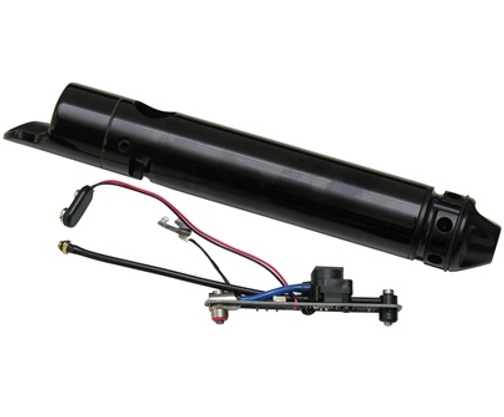
One large customer REQUIRES that two competing factory-authorized contractors be involved on every project: one does all wiring and trim, the other JUST does programming. I don't know what the answer is, except doing it all in-house.
PARTS SMARTS HOW TO
Write out a list and walk away after shutting down the panel? Leave the panel online and hope the sparkies don't blow it up or cause unending false alarms until you're scheduled to return? Or do you sit around and twiddle your thumbs while the sparkies scramble like mad to find problems they MIGHT know how to solve? I usually ended up strapping on my tools and logging my time as I held their hand through things like wiring a waterflow switch properly. Misaddressed device? Loose wire? Ground fault on the addressable loop? Incorrectly wired relay module (because the contacts were in opposite state before loop power was applied)? What does the P&S tech do? Some of these troubles aren't detectable until the panel is programmed. The problem I see with the P&S model is when it comes to troubleshooting at startup. I have been on jobs where we did every possible variation, from all-of-the-above to only one. We can poke chases, pull wire, trim devices, trim panel, program, test, and of course service/ troubleshoot. In our jurisdiction and according to collective bargaining language, we aren't allowed to bend pipe. This is all only relevant where one contractor can be the start & end of a project. (Assuming all drawings provided were accurate, there’s no excuse for screw ups.) If there are repairs to their wiring that needs to be rectified back charge them for wasted time fixing their mistakes.


With a parts & smarts gig, it’s provide the parts drawings/design, come in when everything’s done and have a technician terminate the connections within the fire panel, program, and commission the job.
PARTS SMARTS INSTALL
Adding travel allowances/accomodations to a install job will usually lose it entirely. If you want to win regional/ out of city work parts and smarts is the most advantageous way to go. Best to keep them away from your stuff and feed the work to your own crews instead. As they will come in and price the maintenance or repair work themselves and no longer need your “smarts”. In a non-proprietary world You don’t want electricians within spitting distance getting too familiar with your sites/jobs/products. If the job is within a reasonable distance from home base so that travel allowances are not applied then do the job start to finish. If you are disadvantaged for a project due to distance it’s always more likely you’ll win the work if you partner with local labour for parts & smarts. I’m an estimator and speak to the strategic applications of these types of job.


 0 kommentar(er)
0 kommentar(er)
